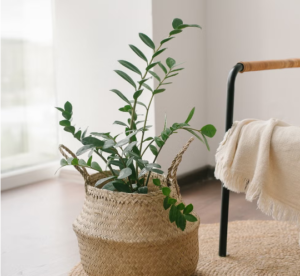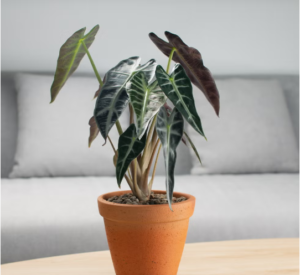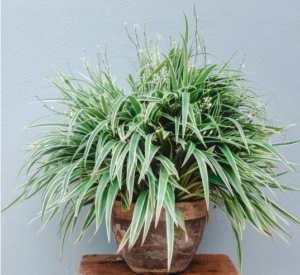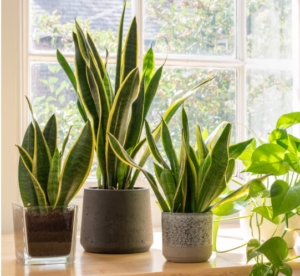When it comes to sprucing up your home, you may look for ways to add color, texture and liveliness to your space. Houseplants do just that, reviving rooms with new, growing life that alters the area around you day by day. While indoor plants have always been popular to an extent, plant parents are taking over social media platforms and sharing their love for their green friends. With over 70 million posts on TikTok related to “Indoor Plants,” it’s safe to say that this trend is about more than just decor.
If you’re nervous about taking on the added responsibility of a houseplant, there are plenty of potted companions that don’t require too much work to keep them alive and thriving. To find the one that’s right for you, browse through the best indoor plants for health, according to experts.
What are the healthiest houseplants?
Lisa Eldred Steinkopf, known as The Houseplant Guru for her blog dedicated to sharing knowledge about plants, says that the healthiest houseplants are the ones that are easiest to care for.
“If one is a new plant parent, it is important to choose plants that are tried and true and easy to grow. Choosing a difficult plant could be stressful and not great for mental health and well-being. Plants like pothos, philodendron, snake plants and ZZ plants are relatively easy plants to grow,” Steinkopf explains.
 1
1
Philodendron Plant
Philodendron plants, known for being low-maintenance, can thrive indoors if given the proper amount of sunlight and water. According to a NASA study, these plants can also be effective in removing volatile organic compounds (VOCs) like formaldehyde and carbon monoxide, improving the air quality of your home.
Philodendron plants prefer indirect light and can grow in average home temperatures, making them easy to care for. There are plenty of different kinds of philodendron plants to choose from, including birkin philodendrons, heartleaf philodendrons, imperial green philodendron and more. While each variation has a few differences when it comes to maintenance, they’re all pretty hassle-free, making them the perfect houseplant for new plant parents.
 2
2
ZZ Plant
Looking for a plant that’s difficult to disappoint? ZZ plants live up to their nickname as the Eternity Plant. According to The Sill, these plants need around six hours of indirect light per day and require watering every two to three weeks.
If you decide to purchase a ZZ plant, make sure to keep it away from any pets or small children — their leaves can be toxic if consumed.
 3
3
Elephant Ear Plants
If you want to spend a little more time with your houseplants, Alex Cromer, LPC, a licensed professional mental health counselor with Thriveworks in Richmond, recommends elephant ear plants.
These are organized into a group of tropical, perennial plants instantly recognizable by their big, heart-shaped leaves. They need bright light and regular watering to keep the soil moist, and they can get big and may need extra space. Some species have been grown for their edible starchy tubers, which are a food staple in certain tropical regions. Medicinally, the leaves have been noted for their use in treating insect stings.
 4
4
Spider Plant
Spider plants, or Chlorophytum comosum, are also easy to grow and care for. If just reading the word “spider” in the name is giving you the creeps, don’t worry. These plants have narrow leaves and get their name from the “small plantlets produced on long trailing stems that vaguely resemble spiders,” according to the University of Wisconsin-Madison Division of Extension.
Spider plants are known to help purify the surrounding air. NASA research examined the leaves, soil, roots and microorganisms of several houseplants and found that plants can act as a natural air filter to reduce pollutants. The study indicates that spider plants removed 95% of toxic formaldehyde from the air in a sealed Plexiglas container over a 24-hour period.
 5
5
Snake Plants
Long known as “mother-in-law’s tongues,” the snake plant, or Sansevieria trifasciata, features tall leaves that grow vertically. They’re decorative and extremely low-maintenance. The plants only need to be watered when the soil is dry, grow in any kind of light and generally “thrive on neglect,” according to experts at HGTV.
“When it comes to mental health and emotional wellbeing, certain houseplants stand out. For instance, snake plants are not only easy to care for but many also have them for their air-purifying qualities,” explains Nussman-Berry.
The snake plant was included in the same sweeping NASA study of indoor plants, and has been shown to remove toxins from the air over time. Plus, they look great on any kitchen windowsill.
